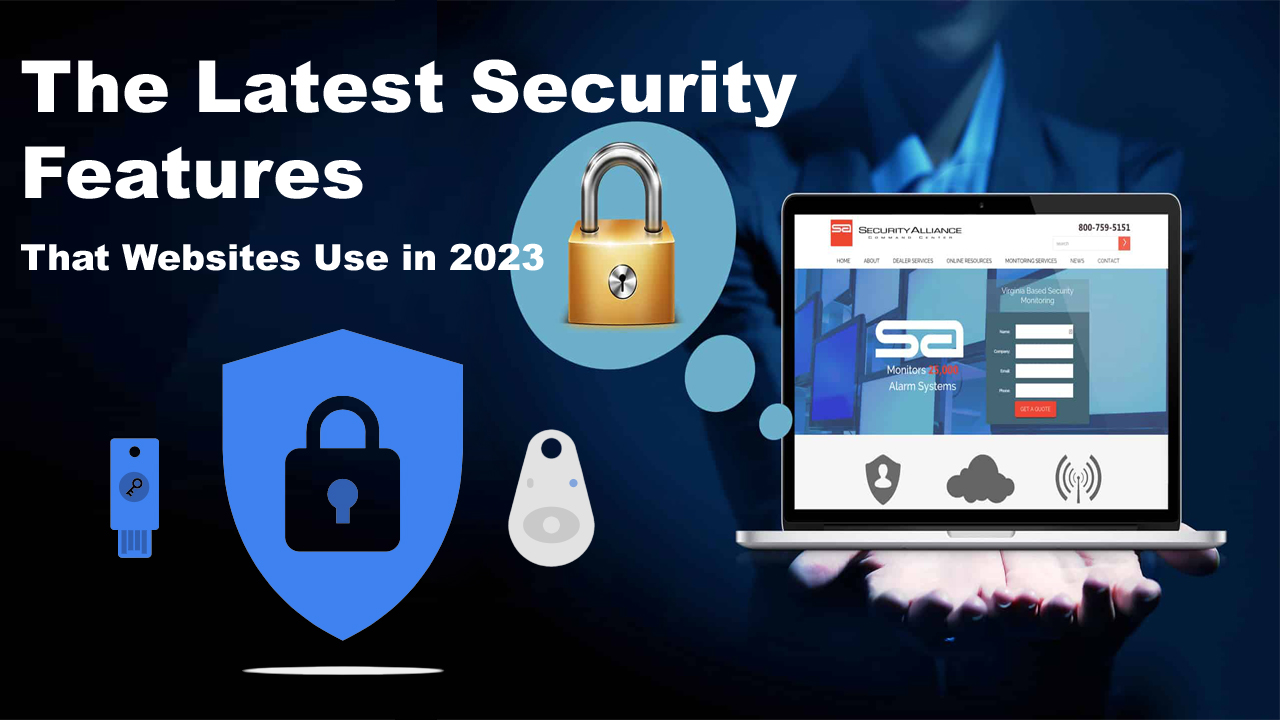In the rapidly evolving digital landscape where websites serve as digital storefronts for businesses of all sizes, the importance of integrating the latest security features cannot be overstated. As technology advances so do the threats posed by cybercriminals seeking to exploit vulnerabilities in online platforms. In this comprehensive exploration, we delve into the critical aspects of building websites with state-of-the-art security features ensuring robust online safety for businesses and their users.
The Evolving Threat Landscape
As the ease of website development has expanded in recent years empowering business owners to become webmasters through content management systems (CMS) like WordPress and Joomla the responsibility for website security has shifted into the hands of individuals and organizations. The growing prevalence of online transactions especially those involving sensitive information such as credit card details emphasizes the need for websites to be fortified against potential threats.
A 2019 report by Google Registry and The Harris Poll uncovered a significant knowledge gap among Americans when it comes to online security. Despite the increasing number of websites being created a considerable portion of the population lacks a comprehensive understanding of what constitutes a secure online experience. This underscores the urgency for website owners to proactively implement the latest security features to protect both their business and the personal information of their users.
The Imperative of Online Safety
Whether you run a small business or a large enterprise users today expect a safe online experience. The digital era has brought about a heightened awareness of the potential risks associated with online activities making it imperative for website owners to prioritize security in their web development efforts.
One of the primary concerns in online safety is the protection of sensitive data especially during online transactions. Users entrust websites with their personal information and it is the responsibility of webmasters to ensure that this data remains confidential and secure. The consequences of a security breach can be severe ranging from financial losses to damage to the reputation of the business.
Essential Steps Towards Enhanced Website Security
In the realm of website security, there are fundamental steps that can be taken to fortify your online presence and create a safer digital environment for both businesses and users. Let’s delve into these essential measures
Keeping Software and Plugins UptoDate
Regularly updating website software and plugins is paramount in maintaining a secure online presence. Outdated software poses a significant vulnerability as potential hackers and bots actively scan websites for opportunities to exploit.
Implementing HTTPS and SSL Certificates
To establish a secure online connection the adoption of HTTPS (Hypertext Transfer Protocol Secure) and the incorporation of SSL (Secure Sockets Layer) certificates are essential. These measures prevent unauthorized access and interception of sensitive data during transit.
Smart Password Practices
Creating and enforcing smart password practices is a foundational step in enhancing website security. This includes generating unique complex passwords for each login regularly changing passwords and avoiding the use of easily guessable information.
Selecting a Secure Web Host
Choosing a reliable and secure web hosting provider is akin to selecting a safe plot of land for your digital presence. Features such as Secure File Transfer Protocol (SFTP) disabled FTP use by unknown users and regular security upgrades contribute to a more secure hosting environment.
Monitoring User Access and Administrative Privileges
Vetting employees and individuals with website access is crucial in preventing unintentional security lapses. Educating users on the importance of passwords and security updates and maintaining a record of user access and administrative privileges contribute to a more secure web environment.
Customizing CMS Default Settings
Default settings on Content Management Systems (CMS) are often targeted by automated attacks. Customizing settings such as file permissions user visibility and permissions adds an additional layer of security to your website.
Implementing Regular Website Backups
A robust backup strategy is a critical component of website security. Storing backups offsite and automating the backup process ensures that in the event of a security incident data can be recovered from a point before the breach occurred.
Understanding Web Server Configuration Files
Familiarizing oneself with web server configuration files such as .htaccess for Apache servers allows webmasters to administer server rules and enhance website security.
Deploying a Web Application Firewall (WAF)
A Web Application Firewall (WAF) acts as a barrier between the website server and data connection filtering incoming traffic to protect against various online threats including hacking attempts spammers and malicious bots.
Tightening Network Security
Analyzing and fortifying network security is vital in preventing unauthorized access to the website server. Implementing measures such as expiring computer logins regular password change notifications and malware scans for connected devices contribute to a more secure network environment.
Final Thoughts
In conclusion, building websites with the latest security features is not just a best practice; it’s an imperative in today’s digital landscape. The evolving threat landscape necessitates a proactive approach to online safety and webmasters must take the lead in implementing robust security measures. By following the essential steps outlined in this comprehensive guide businesses can significantly reduce the risk of security breaches safeguarding both their interests and the trust of their users. In the ever-changing digital realm, a secure online presence is not just a competitive advantage – it’s a prerequisite for success.

Dilshad Mushtaq is the founder and CEO of Best SEO Zone which is a prominent digital marketing agency based in Pakistan Since 2010. He is a professional website developer & Digital Marketer who can create any website and rank it on Google Page One.




